
The aim of our TEL Quality Framework is to assist staff to meaningfully incorporate technology into learning, teaching and assessment. We try to achieve this by combining the 3E Framework with a set of Minimum Expectations for VLE use, and more recently by developing and incorporating the Exemplary Course Rubric (ECR).
Following on from our Moodle Audit in 2018-19, we’re proposing a new approach to course design and minimum standards for 2019-20. In order to simplify the process, improve usability, and hopefully increase standards, we have consolidated the minimum standards checklist and exemplary course rubric into one simple, easy to follow, guide to course design, which will appear at the top of each new course (and can be subsequently removed).
The ECR is intended to establish a minimum standard in the use of the institutional VLE (Moodle), and to ensure a consistent student experience across the University. It is intended to facilitate and encourage a consistent approach to the use of the VLE across the university in four major areas: Course Design, Interaction and Collaboration, Assessment, and Learner Support.
Course Design
Course Design addresses elements of instructional design. For the purpose of this guidance, course design includes such elements as structure of the course, learning objectives, organisation of content, and instructional strategies.
Assessment
Assessment focuses on instructional activities designed to measure progress toward learning outcomes, provide feedback to students and tutors, and/or enable grading or evaluation. This section addresses the quality and type of student assessments within the course.
Interaction & Collaboration
Interaction and Collaboration can take many forms. Emphasis here is on the type and amount of interaction and collaboration within your Moodle course.
Interaction denotes communication between and among learners and tutors, synchronously or asynchronously. Collaboration is a subset of interaction and refers specifically to those activities in which groups are working interdependently toward a shared result. This differs from group activities that can be completed by students working independently of one another and then combining the results. A learning community is defined here as the sense of belonging to a group, rather than each student perceiving themselves studying independently.
Learner Support
Learner Support addresses the support resources made available to students taking the course. Such resources may be accessible within or external to the course environment. Learner support resources address a variety of student services.
FAQs
Answers to common questions about Moodle – if yours isn’t answered here then please get in touch.
When used to it’s full potential, Moodle delivers a powerful set of learner-centric tools and collaborative learning environments that empower both teaching and learning. The pedagogic design of Moodle includes a constructivist and social constructionist approach to education, emphasising that learners (and not just tutors) can contribute to the educational experience. Using these pedagogical principles, Moodle provides a flexible environment for learning communities.
Whether you’re new to Moodle, this is your first time creating a course, or even if you just want to learn how to make the most of Moodle, please get in touch: TEL@yorksj.ac.uk
Phil

ECR is a derivative of Blackboard Exemplary Course Program Rubric, which is licensed under a Creative Commons Attribution-NonCommercial-ShareAlike 3.0 Unported License. Based on a work at blackboard.com/ecp.
Blackboard encourages sharing, reuse, and remix of these materials, in whole or in part, with attribution, for non-commercial purposes.

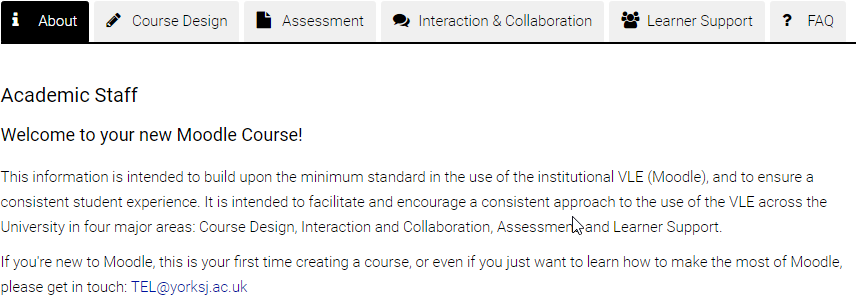
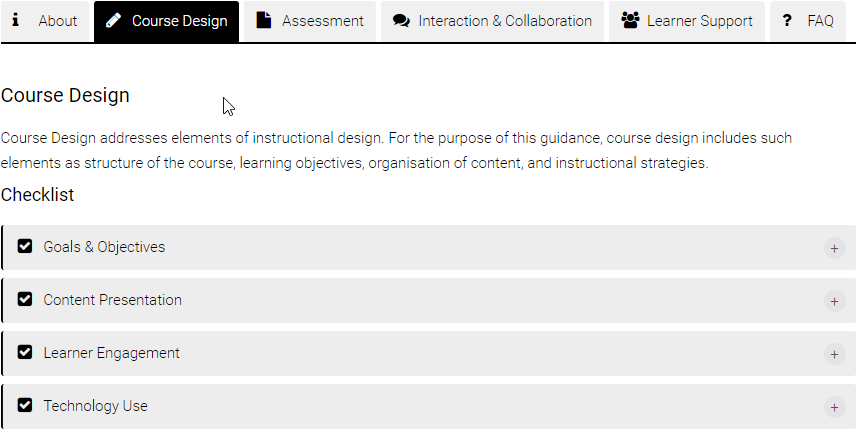
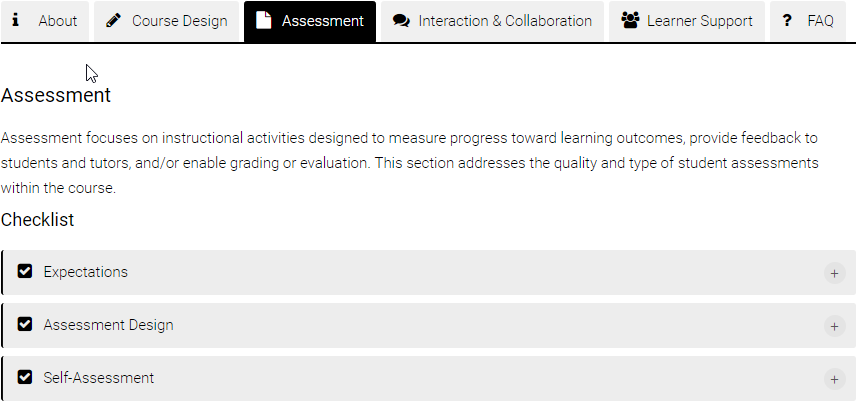
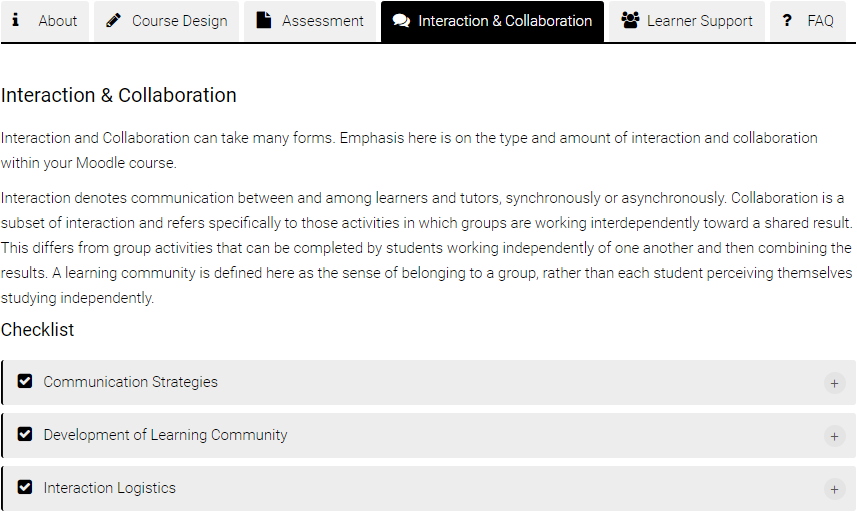
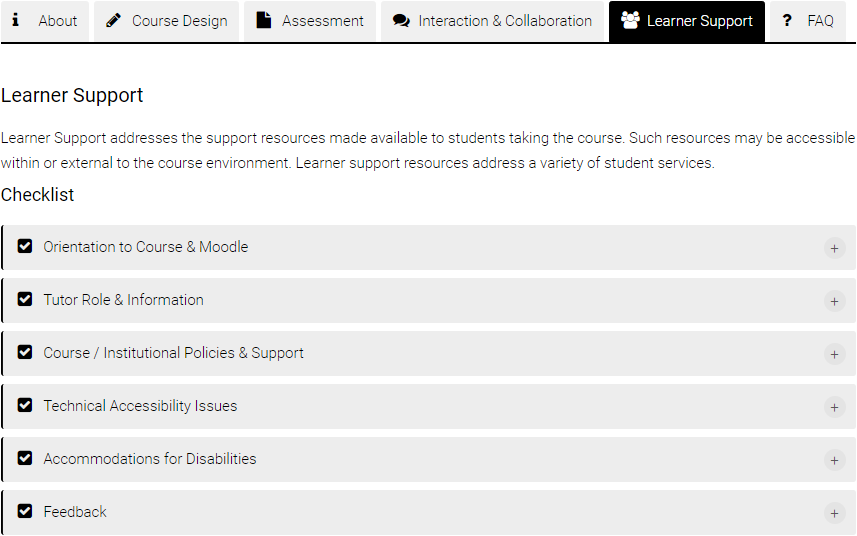
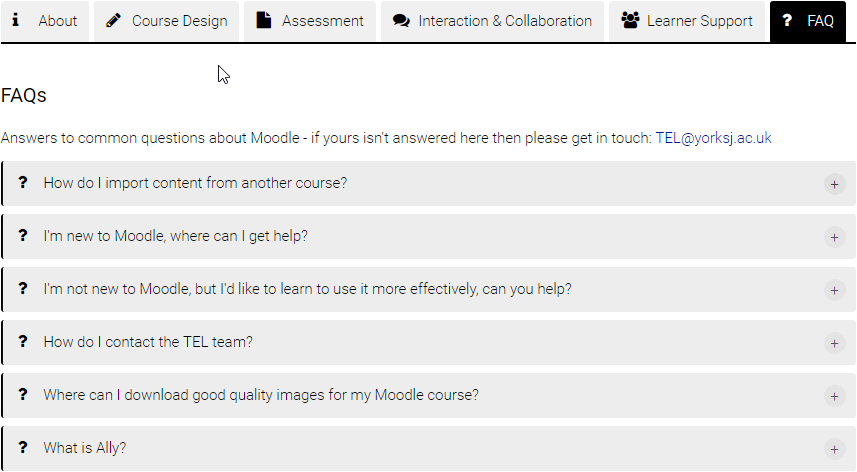
0 responses on "Moodle: Course Design"